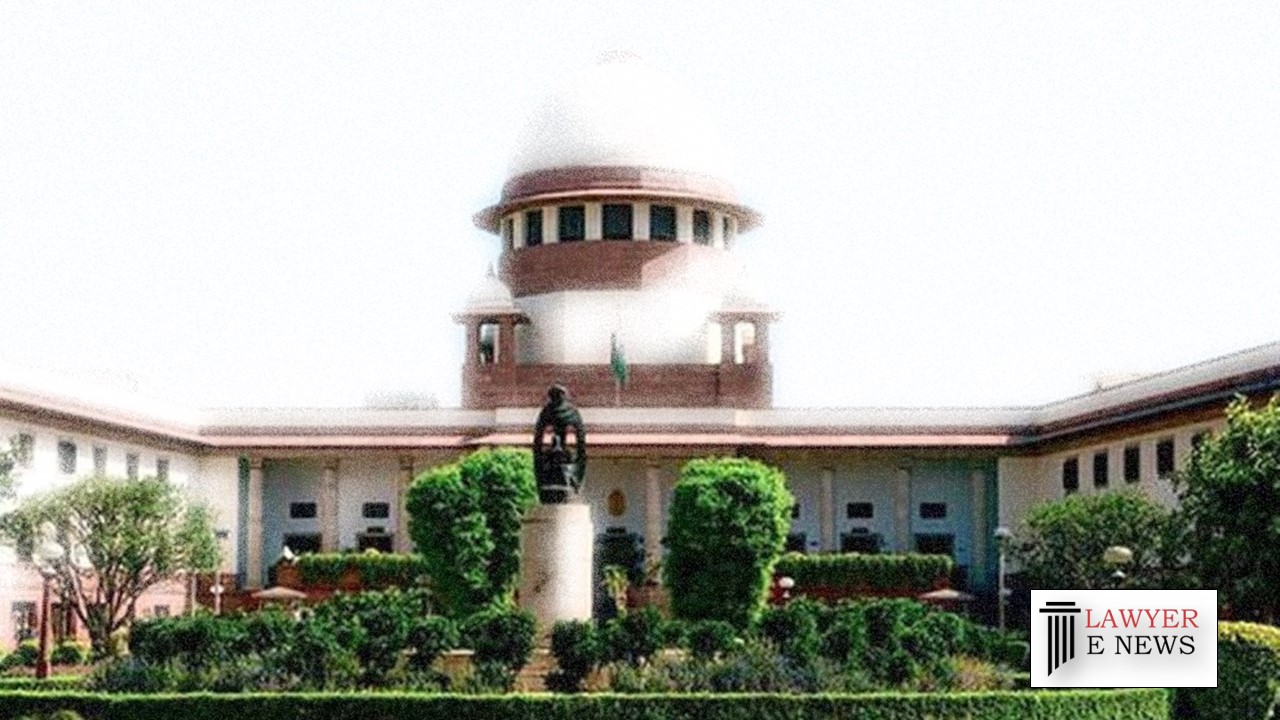-
by Admin
15 February 2026 2:16 AM



In a significant judgment in May 2024, the Supreme Court of India, comprising Justices Pamidighantam Sri Narasimha and Aravind Kumar, dismissed the Kolkata Municipal Corporation’s (KMC) appeal against the High Court of Calcutta’s ruling. The core issue was the KMC’s attempt to compulsorily acquire property under Section 352 of the Kolkata Municipal Corporation Act, 1980, which the High Court had previously deemed invalid. This judgment reinforces the constitutional right to property and the necessity of adhering to due process.
Background
The property in question, located at Premises No. 106C, Narikeldanga North Road, Kolkata, belonged to Mr. Birinchi Bihari Shah. Following multiple attempts by KMC to forcefully occupy the property, Birinchi Shah filed a writ petition in 2009, seeking a restraint order. Despite various rounds of litigation, the High Court consistently held that KMC lacked the authority under Section 352 to compulsorily acquire property, leading to the appeal before the Supreme Court.
Key Points of the Judgment
Power of Acquisition Under Section 352
The Supreme Court upheld the High Court’s interpretation that Section 352 of the Kolkata Municipal Corporation Act, 1980, does not confer the power of compulsory acquisition. It merely authorizes the Municipal Commissioner to identify land for public purposes but requires the acquisition process to be conducted under Section 537, which involves the State Government.
Constitutional Right to Property
The Court emphasized that the right to property under Article 300A of the Constitution is a constitutional and human right. Any deprivation of property must comply with a fair procedure established by law, which Section 352 fails to provide. The Court highlighted seven integral sub-rights under Article 300A, including notice, hearing, reasoned decision, public purpose, fair compensation, efficient process, and conclusion. Non-compliance with these renders any acquisition process unconstitutional.
Procedural Violations by KMC
The Court observed that KMC’s actions were in blatant violation of statutory provisions. KMC failed to follow due process, did not provide adequate notice, and wrongly recorded its name in official records. The acquisition attempt under Section 352 was deemed illegal and invalid.
Dismissal of Appeal The Supreme Court dismissed KMC's appeal with costs of Rs. 5,00,000 to be paid to the respondent within sixty days. The High Court's judgment was upheld in its entirety.
Court Observations and Analysis
The judgment delved into the legal principles of property rights and the interpretation of statutory provisions. The Court meticulously analyzed Sections 352, 363, and 537 of the Kolkata Municipal Corporation Act, 1980. It concluded that Section 352 merely provides the Municipal Commissioner with the authority to identify land for public use, whereas the actual power of acquisition lies with the State under Section 537.
The Court also reinforced the importance of procedural fairness in compulsory acquisitions, citing various precedents and statutory provisions. The Court's observations underscored the necessity for a transparent and just acquisition process, adhering to constitutional mandates and protecting individuals' rights against arbitrary state actions.
Decision: The Supreme Court's ruling is a landmark in reinforcing property rights and procedural fairness. It reiterates that statutory authorities must strictly adhere to the procedures laid down by law while acquiring property. This judgment serves as a reminder that the power of eminent domain is not absolute and must be exercised within the constitutional framework ensuring due process and fair compensation.
Date of Decision: May 16, 2024
Kolkata Municipal Corporation & Anr. vs. Bimal Kumar Shah & Ors.
